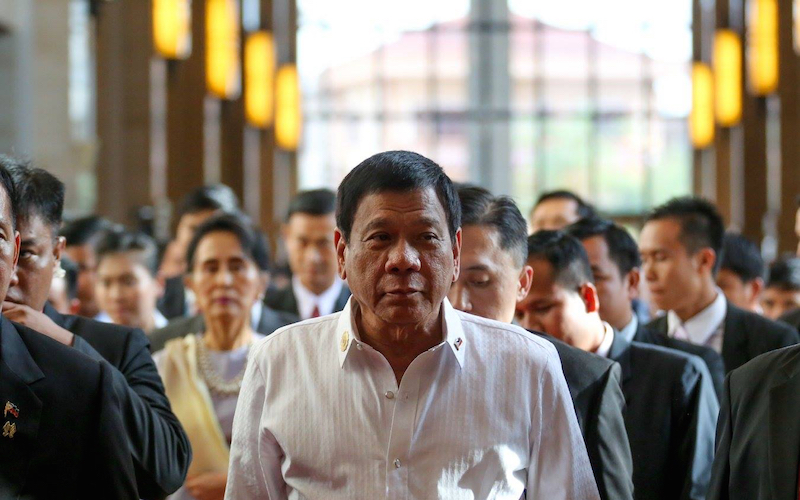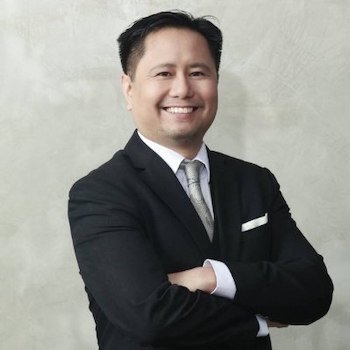
Duterte’s First 100 Days
As Philippine President Rodrigo Duterte enjoys a “very good” net satisfaction rating three months into his presidency, and high approval ratings from the Filipino people, our assessment of the feisty foul-mouthed leader is somewhat less generous. There is no doubt that Duterte remains very popular among a broad cross-section of the Filipino people, and that he has broad-based support among all socio-economic classes, but his net ratings are really little different than those of many other Philippine presidents — from Fidel Ramos to his immediate predecessor, Benigno Aquino III — experienced in their respective first 100 days in office. Historically, high satisfaction ratings tend to taper off by within six to nine months from the assumption of office.
The Philippines remains one of the fast growing economies in Asia, piggybacking on the prior gains in economic fundamentals attributed to President Aquino. The World Bank expects economic growth to accelerate to 6.4 percent this year, and according to the country’s board of investments, overall investment commitments have soared 200 percent, to 51 billion pesos, from 17 billion last year. There is a flip side to this rosy data, however. In recent weeks the Philippine Stock Exchange reached its lowest point since Duterte took office and the Philippine peso has become the worst performing currency in Asia, the result of uncertainty around the ‘unconventional‘ path being taken under his presidency.
Some local and foreign investors have been pulling their money out of the country at a brisk pace. Duterte’s “noise” not only creates uncertainty, but muddles up economic policy. Standard and Poors cited the President’s unpredictable and unclear policy signals as an ongoing concern and has hesitated to make further positive forecasts for the economy, although the rating agency has, for the time being, retained the country’s investment grade.
On the other hand, Templeton’s Mark Mobius underscored Duterte’s pledges to cut income tax and double infrastructure spending as good signs for the remainder of his six-year term. The ‘ratings’ jury will remain out until sufficient time has passed to determine whether investors will give a definitive sign that the good times may be over in the Philippines.
The incidence of criminality has, predictably, markedly dropped, especially in urban areas. Filipinos today generally feel safer as they walk the streets. And never before have the country’s leaders seen such great progress in the peace process with the National Democratic Front and the Communist Party of the Philippines. The latest round of peace talks is approaching its second round in Oslo. Rebel leaders claim to be seeing a level of seriousness and sincerity on the part of Duterte’s government not seen in prior administrations. In fact, as part of Duterte’s approach to inclusive government, he appointed several nominees from leftist militant groups to occupy key cabinet positions, from agriculture to social services.
If we were to sum up Duterte’s first 100 days in a few words, it would be “strong political will.” That has also translated into the similarly predictable rise of extra-legal killings and perceived human rights abuses, that have characterized Duterte’s aggressive anti-drug campaign and which thus far has resulted in the deaths of more than 3,000 people in just three months. The absence of due process and any concern for human rights have become Duterte’s trademark. He has drawn condemnation from international human rights groups, United Nations agencies, the U.S., the EU, and church groups, among others. He was roundly condemned from the global Jewish community after he had compared his war on drugs with Hitler’s treatment of the Jews during the Holocaust.
If we were to characterize Duterte’s approach to international relations in a few words, they would be “what on earth is he doing”? Politically, Duterte’s presidency has thus far been an unmitigated disaster. Although he has only been in office a few months, Duterte has been giving Donald Trump a run for his money as the most bombastic and outrageous political figure on the global media stage.
Just as a large percentage of Americans apparently love Trump’s weekly offensive and absurd statements, a “huge” percentage of Filipinos apparently applaud when Duterte verbally “sticks it” to Obama, the UN, and even the Pope. He has succeeded in alienating the country’s historically most important global ally – the U.S. – while inexplicably embracing China as it continues its brazen exploits in the South China Sea, in spite of the Philippines’ victory against China in the Permanent Court of Arbitration at The Hague earlier this year.
Duterte is upending decades of post-war foreign policy, with as yet unforeseen consequences. He has threatened to sever U.S. relations and to scrap the Enhanced Defense Cooperation Agreement with the U.S., the country’s number one ally. The US military alliance is crucial to establishing an effective and credible defense force, and to enhancing the country’s armed forces modernization, yet Duterte said that this year’s joint war games with American forces would be the “last,” and instead vowed to strengthen bilateral relations further with China and Russia. Duterte seems hell bent on expending huge moral and legal capital to dismantle hard fought gains the country has won over many decades, in essence to stroke his own ego and stick a finger to those global powers he does not favor.
While it remains far too early to declare the Duterte administration either a success or failure, some conclusions may already be drawn. The social costs of Duterte’s tirades and attempt at geopolitical rebalancing cannot be captured in terms of lost opportunity in military assistance, nor in terms of international reputational damage alone, but in terms of long-term societal costs that come with the normalization of crises as ordinary events. For example, there has been little scrutiny about Duterte’s recent proclamation of a state of national emergency following the bombing of a Davao city night market and a new spate of hostage taking by the Abu Sayyaf, an ISIS-affiliated terrorist group.
Never previously has a state of emergency been declared as a result of a single bombing or kidnappings, which were in any event far more serious a decade ago than they are today. And, in fairness, bombings have regrettably become commonplace in areas of the southern Philippines over the past two decades. No time frame has been attached to this state of emergency, which could well become indefinite. The declaration would appear to be little more than an attempt by Duterte to enhance his already strong hold on power, and give him carte blanche to impose further measures designed to rid the streets of crime.
It may already be the case that Filipinos have accepted the militarization of civilian police functions as part of their normal life. Not only is this reminiscent of the martial law years of the presidency of Ferdinand Marcos, it revives society’s destructive fixation with strongman politics, and the dangers associated with dictatorial rule. Given the Philippines’ post-war history, it is surprising that more Filipinos have not publicly questioned both the imposition of the state of emergency, and the fact that no time frame has been placed upon it.
Crisis strategies are characterized by supply-driven rhetoric. Duterte promised radical change, but how much has really changed on the ground? What, if anything, has Duterte done, or does he intend to do, to address the plethora of structural maladies that plague the Philippines – from a broken judicial and penal system to rampant and endemic corruption? This will likely become a recurring question throughout his term in office. While an “our-brand-is-crisis” strategy can be an effective approach to an election campaign, because it draws power by frightening people already inclined to believe it, it has no place in day-to-day governance. Normalizing fright and violence is not a governance model and is a huge step in the wrong direction. What the Philippines needs today is for Duterte to end his outrageous tirades, maintain the respect it earned during the Aquino administration, implement policies that ooze with common sense, and adopt a long-term orientation toward achieving regional peace, stability and cooperation. Whether that can be achieved under Duterte remains highly doubtful.


